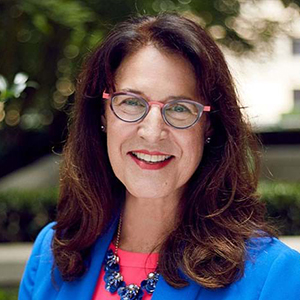
Closing the Story Gap: Golden Globes
A new day is on the horizon. Oprah said that in her amazing speech at the Golden Globes on Sunday night, and I believe she’s right. Sure, it would be easy to say that 2018 has already been an exhausting year with one crisis-filled news cycle after another. If we’re not careful we could get consumed by worries over things we can’t control. I choose instead to tune out all the loud, blustery half-stories and not-quite-truths flooding our airwaves and bandwidths. I challenge us all to focus, instead, on the information — and the people — that can unite and inspire us to make genuine, lasting change.
Oprah told the world something we already know: that the most important work we can do is to give voice to the voiceless. It’s not about telling other people’s stories, it’s about giving folks the tools they need to tell their own, on their own terms. It’s about working together, standing side by side and closing the Story Gap once and for all.
#MeToo movement: truth to power
By now, I’m sure you’re familiar with the #MeToo movement: the hundreds and thousands of brave women (and men, too) who have spoken up and spoken out against workplace harassment, intimidation and violence. These folks didn’t just speak truth to power: They used the truth to bring power to its knees.
Because, of course, silence is how power protects itself. When people don’t feel safe at work, when they are harassed and discriminated against, when they can’t stand up for themselves and their colleagues, they’re unable to reach their full potential. They can’t challenge the inequalities and injustices that keep the status quo in place, and so the status quo stays in place — until now.
Time is up for the status quo
But the status quo’s time, as Oprah put it, is up. On film sets and in newsrooms and boardrooms and legislative offices across the country, people are telling their stories, speaking their truths, upending business as usual. Earlier in the Golden Globes ceremony, when Elisabeth Moss accepted the award for her work in “The Handmaid’s Tale” (adapted from Margaret Atwood’s novel), she explained:
This is from Margaret Atwood: “We were the people who were not in the papers. We lived in the blank white spaces at the edge of print. It gave us more freedom. We lived in the gaps between the stories.”
“We no longer live in the blank white spaces at the edge of print,” Moss continued. “We no longer live in the gaps between the stories. We are the story in print. And we are writing the story ourselves.”
When Oprah said “what I know for sure is that speaking your truth is the most powerful tool we all have,” she issued a compelling challenge to us all: to speak, but also to listen. To tell our own stories while we embrace other people’s too. To stop giving the most value to the loudest voices. To start hearing those who were once silent, and start seeing those who were once invisible. That, Oprah suggested, is how we are going to change the world.
Next week, we celebrate Martin Luther King Jr. Day. Oprah’s speech reminded me of something Dr. King liked to say: that the arc of the moral universe bends, eventually, toward justice. But it won’t bend on its own. We have to pull it toward justice, over and over again, every day. And as we do, our muscle, our power, comes from the stories we tell.
This year, I’m committed to closing Story Gaps wherever I find them — at work, in the news, even at the dinner table with friends and family. I’m going to slice through the static and celebrate the truth. That’s how, as Oprah put it, we’ll be able to “maintain hope for a brighter morning.” And for that, the time is now.
Read more posts from WE Global CEO and Founder Melissa Waggener Zorkin here.
The latest blogs from WE
Decoding Gen Alpha: A Primer on the Next Gen of Consumers
Why Gen Alpha Will Fuel Spending This Season
Why Reputation Is a Business Driver in Healthcare


